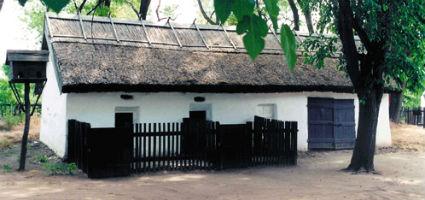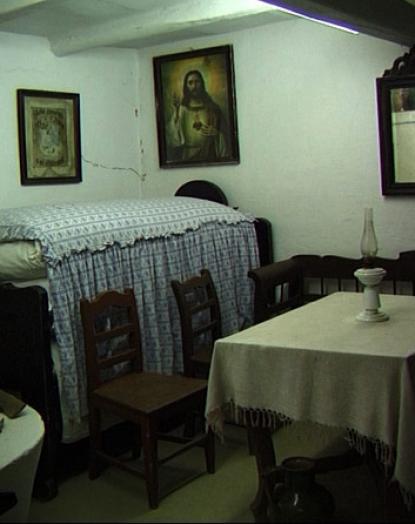2024. November 24. Sunday
Farming Museum of the Hungarian Agricultural Museum - Lajosmizse - Bene
 |
Address: 6050, Lajosmizse - Bene Bene tanya (Alsóbene 225)
Phone number: (1) 363-1117, (30) 236-4013
E-mail: muzeum@mmgm.hu
Opening hours: 15.03-15.10.: Tue-Sun 10-16
|
Museum tickets, service costs:
|
Ticket for adults
|
200 HUF
|
|
|
Ticket for students
|
100 HUF
|
|
|
Ticket for pensioners
|
100 HUF
|
The furnishing of the dwelling house mirrors the lifestyle of the peasants of the homesteads of Lajosmizse at the turn of the century. The middle room of the house was the kitchen, which was made up of two parts: the porch, which also functioned as a hallway and the bottom of the chimney. Dishes of pottery hang on the walls of the porch. Under the chimney three inglenooks was placed: one to place tools on, the other was the 'nice inglenook', and the third was the heating inglenook with a pot. Behind the middle inglenook, a cavity in a semi circle is carved in the wall to keep the tools and equipments there.

The large room served as a living quarter for the older members of the family. The small room belonged to the young couple. The furniture of the large room was more antique, while the other room was furnished with fashionable furniture. The furnace in the old room was right to the entrance, in the corner opposite the table and the chairs stood which was the most sacred place of the house. There was a commode, chests, and carved chairs in the room as well. The whitewashed walls were covered pictures of saints.
A thin furnace with a seat stood in the corner to the left of the door of the small room. In the other corners, according to the rules of parallel furnishing, two beds, among them, a long bench were placed. The table with four chairs were in front of them.
The fourth room of the house was the chamber that opened from the yard. It was mainly used to store food and equipments.
In one part of the barn opposite to the house cattle, in the other part horses were kept. In between a small rammed floor with a bed for young boys.
The so-called 'hill puller' was a typical tool in the shed. The peasants flattened the sandy soil with this witty equipment.

The large room served as a living quarter for the older members of the family. The small room belonged to the young couple. The furniture of the large room was more antique, while the other room was furnished with fashionable furniture. The furnace in the old room was right to the entrance, in the corner opposite the table and the chairs stood which was the most sacred place of the house. There was a commode, chests, and carved chairs in the room as well. The whitewashed walls were covered pictures of saints.
A thin furnace with a seat stood in the corner to the left of the door of the small room. In the other corners, according to the rules of parallel furnishing, two beds, among them, a long bench were placed. The table with four chairs were in front of them.
The fourth room of the house was the chamber that opened from the yard. It was mainly used to store food and equipments.
In one part of the barn opposite to the house cattle, in the other part horses were kept. In between a small rammed floor with a bed for young boys.
The so-called 'hill puller' was a typical tool in the shed. The peasants flattened the sandy soil with this witty equipment.
